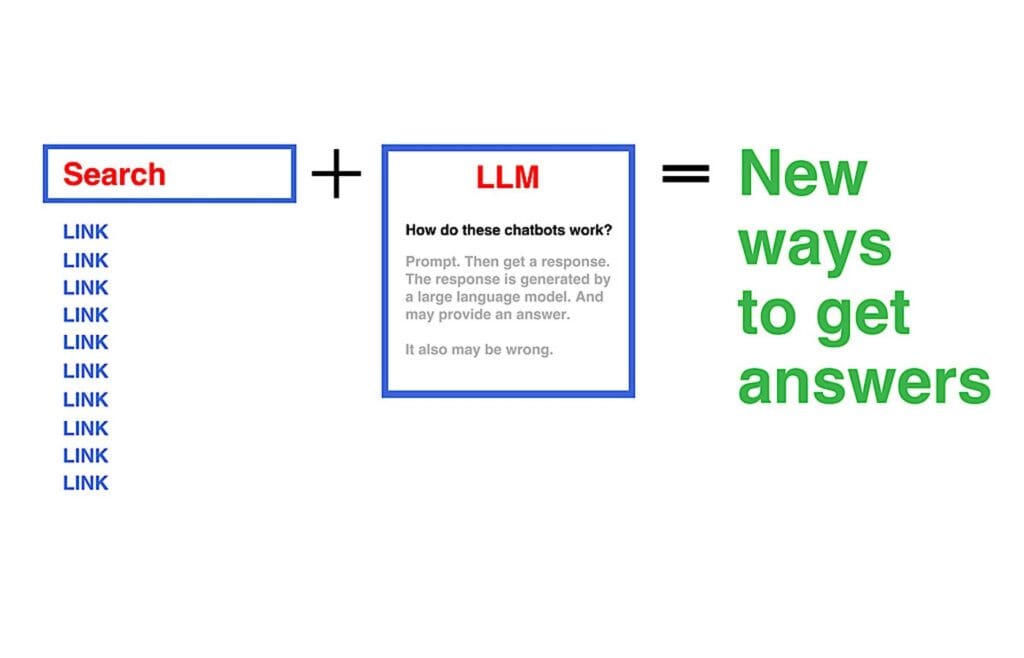Exploring the Latest AI-Based Search Systems
In the world of emerging AI-based search systems, the utilization of large language models (LLMs) is becoming increasingly prevalent. These systems are designed to generate explanations, consolidate information from various sources, and concisely summarize web pages. However, it’s important to note that while these AI tools offer valuable insights, the accuracy of the content they produce may not always be guaranteed. Let’s delve into five cutting-edge AI search systems that are revolutionizing the way we search for information.
Google’s AI Overviews: A Glimpse into the Future
Google’s AI Overviews, formerly known as Search Generative Experience, is a new feature introduced at Google I/O 2024. This innovative tool aims to distill information from multiple sources into a single relevant answer, eliminating the need to sift through endless links. Initially, AI Overviews are most likely to appear for searches related to brainstorming, planning, or understanding complex topics. While the system is still in its early stages, Google is gradually rolling out AI Overviews as part of its free, ad-supported search service, available on both web and mobile platforms.
While Google continues to fine-tune this feature, it’s crucial to verify the accuracy of AI-generated responses to ensure the information is reliable.
Perplexity: Harnessing AI for Every Search
Perplexity takes AI assistance to the next level by leveraging artificial intelligence for every search prompt. Unlike Google’s AI Overviews, Perplexity offers AI-generated responses to every question, providing easy-to-follow reference links to verify the information sources. Users can opt for a free account with standard and pro searches or upgrade to Perplexity Pro for access to advanced AI models like GPT-4. Available on web and mobile platforms, Perplexity caters to users seeking comprehensive AI-driven search results.
Kagi Search: Unveiling AI On-Demand
Kagi Search distinguishes itself by offering tracking-free and ad-free search results from a diverse range of sources, including its web and news indexes and Wolfram Alpha. This platform filters and sorts data meticulously to deliver relevant search outcomes. Kagi provides three AI-driven services:
- Quick Answer: Summarizes search results with the help of LLMs
- Summarizer: Creates concise summaries from web links or text
- FastGPT: Acts as a responsive AI chatbot for single queries
With a free trial option for up to 100 searches and paid plans for extended usage, Kagi Search caters to users seeking customizable AI assistance.
Arc Search: Redefining Mobile AI Search
Arc Search, developed by The Browser Company, is a search-centric AI-enabled app designed for iPhone users. This innovative platform offers three key AI features:
- Browse for me: Utilizes AI to curate search results from multiple pages at once
- Pinch to summarize: AI-driven summary of web page contents
- Raise to call: Voice-activated search responses read aloud by a synthesized voice
Arc Search enables users to set their preferred secondary search engine, including options like Kagi or Perplexity. By prioritizing relevant information and simplifying the search process, Arc Search enhances the mobile search experience.
Exa: Bridging the Gap Between LLMs and Users
Exa is a versatile search platform that caters to both AI language models and human users. By structuring search queries as statements, Exa aims to link users to conceptually relevant content rather than mere keywords. This approach streamlines the search process, providing users with consolidated information and eliminating the need to browse multiple web pages. Exa’s unique interface and focus on relevant content make it a valuable tool for users seeking in-depth insights.
Exploring Alternative AI-driven Search Systems
In addition to the aforementioned platforms, several other AI-driven search systems are making waves in the industry:
- Microsoft’s Copilot: Leveraging Bing search engine expertise for innovative search solutions
- Grok: Offering summaries of recent discussions for X Premium subscribers
- Brave Software: Integrating AI assistant Leo into its independent search service
As the realm of AI-driven search continues to evolve, these alternative platforms provide users with diverse options for accessing accurate and relevant information. Whether you prefer Google’s AI Overviews or seek a tracking-free experience with Kagi Search, the future of AI-driven search systems is undoubtedly promising.
Which AI-driven search systems do you currently use, and how have they transformed your search experience? Feel free to share your insights with me on X (@awolber) to explore the ever-changing landscape of AI and LLM-powered search.

